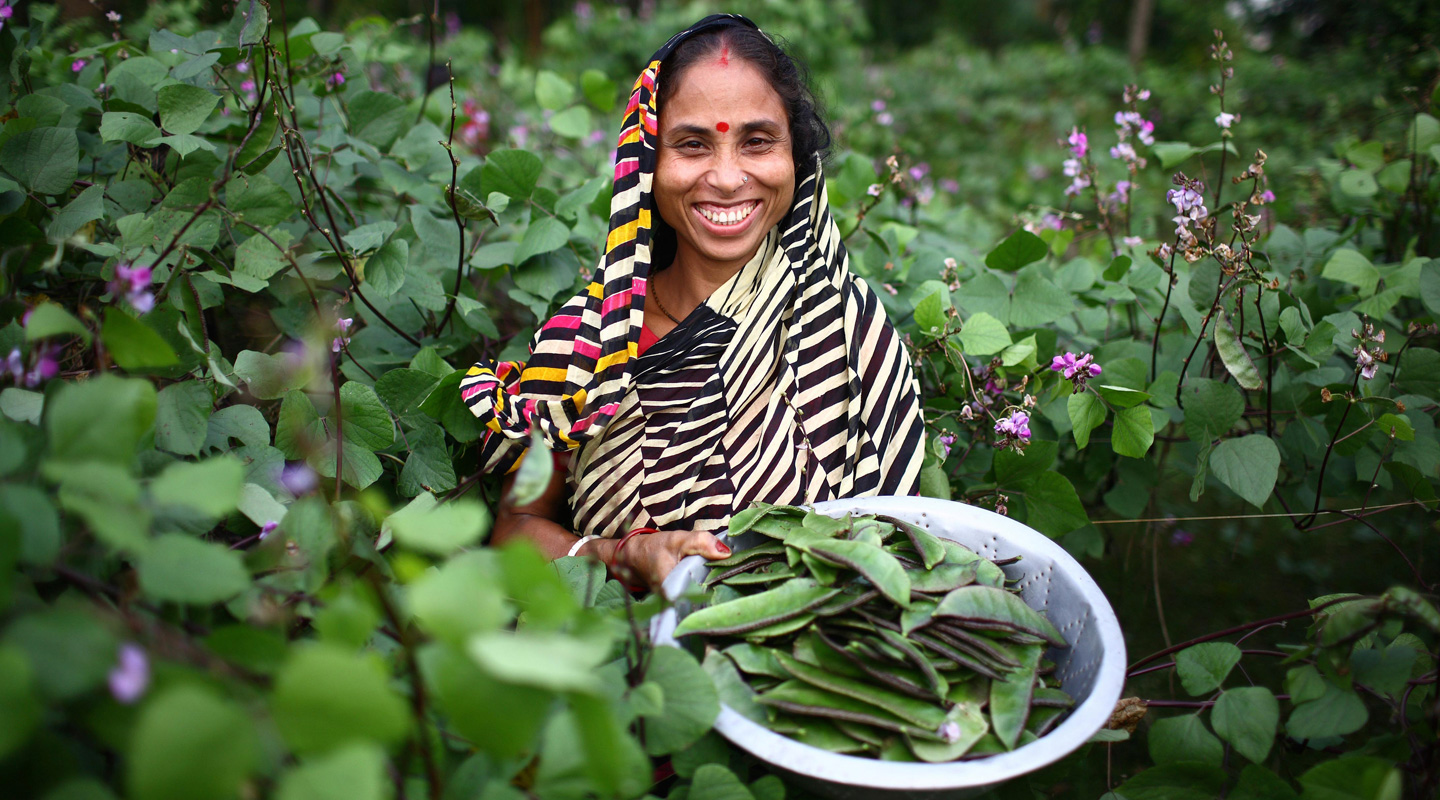To tackle climate change, we need to empower rural women. Here are four ways to do that
IFAD Asset Request Portlet
Asset Publisher
To tackle climate change, we need to empower rural women. Here are four ways to do that
Estimated reading time: 4 minutes
Rural women in developing countries are already feeling the effects of climate change in their daily life.
They’re seeing weather patterns change, and once-dependable crops are no longer thriving.
They’re having their livelihoods wiped out by extreme weather events – and with less access to resources than men, they have a harder time bouncing back.
They’re at greater risk of gender-based violence due to climate disasters.
They’re often the ones feeding the household, so they notice when a variety of nutritious food is no longer affordable or available.
But most importantly, they know what needs to be done to help their households and communities adapt to climate change and build resilience.
Here are four ways to empower rural women for a climate-safe future.
1. Listen to women
Women make up almost half the world’s agricultural workforce. They know the local landscapes and resources well, including the wealth of biodiversity available. Yet their voices often go unheard when and where decisions are being made – including in their own households.
Studies show that when women have an equal say in decision-making, their households and communities cope better with the changing climate. This leads to more effective, comprehensive and inclusive solutions – and, moreover, it’s a matter of equality and justice. It’s crucial for women’s voices, agency, perspectives and knowledge to be represented.
Many IFAD-supported projects get women involved in planning, ensuring that their knowledge informs climate change adaptation strategies: from building climate-smart infrastructure to sustainably managing climate-sensitive natural resources like water.
In Sudan’s Butana region, for example, women have historically been disadvantaged and marginalized. They’re now coming together in informal groups, building their leadership skills, and leading community networks that manage and protect communal rangeland from desertification and other threats.
2. Invest in women’s economic growth
Women’s economic empowerment doesn’t just benefit women – it’s good for their households and communities, too. It increases and diversifies incomes, and protects against financial shocks and environmental crises. With improved access to inputs and knowledge of climate-smart practices, empowered women are also better equipped to protect natural resources and prevent land degradation.
Yet social, structural and legal barriers still prevent rural women from achieving their full potential. About 95 per cent of the world’s economies have at least one law restricting economic equality for women.
That's why IFAD's initiatives to secure land rights for the poorest rural people focus on women.
Insurance policies are another way to provide financial stability in the face of climate risks, incentivize climate-smart agriculture, and unlock other financing options. By promoting access to insurance for women farmers, IFAD is helping them grow their businesses.
IFAD-supported projects are also boosting rural women's earnings. Women’s associations in Paraguay are pooling resources and investing in female-run businesses, with incomes increasing up to five-fold. And in Mozambique, women now make up 65 per cent of farmers involved in cassava and vegetable value chains.
3. Reduce women’s workloads
Rural women bear the brunt of responsibilities, both on the farm and at home, without getting full credit or compensation for their labour. These daily chores leave women with little time or energy to grow a business or take part in decision-making.
At IFAD, we promote equipment and techniques that slash the time and effort needed to do laborious tasks. For example, women's lives in north-east Brazil have been transformed thanks to simple, cost-effective equipment that reduces the processing time of the nutritious burití fruit from days to a matter of hours. These women are now leading producer organizations and marketing their products more widely, resulting in increased incomes, better connected communities, improved resilience, and increased cultivation of an indigenous food crop.
We also promote the use of Household Methodologies, a series of dialogues designed to get women and men talking about – and questioning – traditional gender norms. Through these dialogues, families come to better understand women’s contributions to the household and discuss how they divide household tasks, and their rewards, more fairly.
4. Break down the barriers holding rural women back
Bringing down barriers and ending power imbalances for rural women requires nothing less than a social transformation – a complete rethinking of the discriminatory social and cultural norms that hold them back.
IFAD’s goal is gender transformation: changing the formal and informal social structures that reinforce gender inequalities. We help women and girls make informed decisions, deal with climate-induced pressures on their lives, and be recognized as fearless agents of change. We address women’s practical needs by improving their technical knowledge and skills and increasing their access to assets.
One of our most reliable tools in this regard is the Gender Action Learning System, a specific household methodology that encourages participating families to visualize and plan their future by creating a series of drawings and diagrams together.
In Rwanda, this system is used to improve family dynamics and relations with neighbours, analyse information that helps communities tackle climate change, and support participation in water management committees.
Rural women hold the keys to climate resilience for themselves, their households, their communities, and the world. It’s time we let them lead the way.
Explore all of IFAD's work on gender and climate change, and learn more about IFAD’s Gender Policy.
Publication date: 07 March 2022